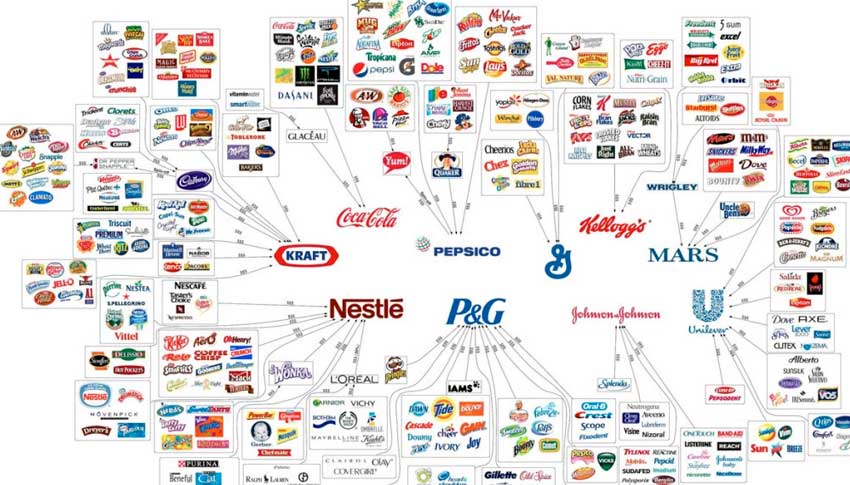Table of Contents
FMCG (FMCG) means fast-moving consumer goods. The Economy Watch investment and finance reports define this as “consumer items that are normally consumed by consumers at a regular interval.” Food and drink, glassware, paper, over-the-counter pharmaceuticals, cosmetics and other popular products in the FMCG sector are often made by companies engaged in other businesses. Finding the top 10 in the world involves the search for FMCG companies in several standard annual lists of major companies in all sectors.
Forbes Global 2000
The Forbes Global 2000 list, published annually by the American business magazine “Forbes”, uses composite scores based on sales, profits, assets and market value to rank the main companies. The next 10 companies are Forbes’ highest-ranking FMCG companies, in order, among the main 2,000 for 2010:
List of FMCG companies
- Proctor & Gamble
- Nestlé
- Anheuser-Busch
- Unilever
- Coca-Cola
- PepsiCo
- Kraft Foods
- Philip Morris International
- British American Tobacco
- Nokia
Companies that only partly engage in FMCG industries could have been placed higher on the “Forbes” magazine list but they are not counted here, because it is not their main business. Pharmaceutical companies, for example, can make both FMCG over-the-account products and prescription drugs, which are not considered consumer goods.
FT 500
The FT 500, often referred to as the “Footsie 500”, is a list of global publicly owned companies with traded shares in the London markets. The list is compiled by the “Financial Times”, the London business newspaper. Because their method of compiling a list is different from Forbes, the companies included and the way they are classified may be different. However, until 2010, the two lists shared a good number of the same FMCG companies.
The high-end consumer goods companies in the FT 500, in order, are Nestlé (No. 12 on the global list), Procter & Gamble (14), Coca Cola (38), PepsiCo (47), Philip Morris International (52), Unilever (61), Anheuser-Busch (65), British American Tobacco (79), L’Oreal (92) and Nokia (102).
Other large companies
The fact that a company creates famous-brand consumer goods does not necessarily place them in the consumer goods sector. General Electric, for example, was classified by Forbes as the number 2 company in the world in 2010 and has a well-known brand that appears in this type of obvious consumer products such as light bulbs. But a quick look at GE’s list of products shows that it is rather a conglomerate of a consumer goods company. Among the activities listed on the website are appliances, aviation, consumer products, electrical distribution, energy, finance (companies and consumers), healthcare, lighting, media and entertainment, oil and gas, Rail, software and services, and water.
